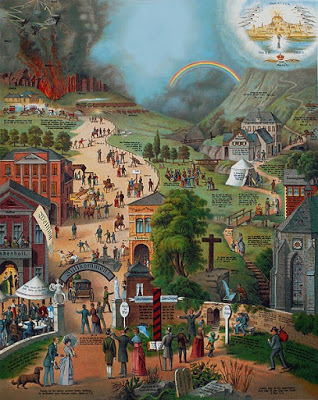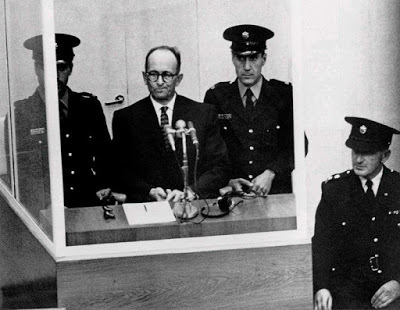Stephen Roney's Blog, page 196
June 19, 2021
Everybody's Wounded
Well, it's Father's Day, and everybody's wounded
First we take Manhattan, then we take Berlin.
These are the final words of Leonard Cohen’s song/poem “First We Take Manhattan.” In it, he is clearly equating the fashion industry with Nazism. His father was in the fashion business.
I don’t like your fashion business, mister
I don’t like those drugs that keep you thin
I don’t like what happened to my sister
First, we take Manhattan
Then we take Berlin.
These are the first words of Leonard Cohen’s song/poem “The Story of Isaac,” in which he speaks as Isaac, about to be ritually slaughtered by his father Abraham.
The door, it opened slowly
My father, he came in
I was nine years old.
His father died when Cohen was nine.
Something was going on between Cohen and his father, that he is not speaking openly about.
When it all comes down to dust
I will kill you if I must
I will help you if I can
When it all comes down to dust
I will help you if I must
I will kill you if I can
Perhaps something was also going on between Bob Dylan and his father. Dylan alludes to the same Biblical story of Abraham and Isaac in “Highway 61 Revisited.” The song is important enough in his mind that it also gives its name to the album.
Oh God said to Abraham, "Kill me a son"
Abe says, "Man, you must be puttin' me on"
God say, "No." Abe say, "What?"
God say, "You can do what you want Abe, but
The next time you see me comin' you better run"
Well Abe says, "Where do you want this killin' done?"
God says, "Out on Highway 61."
It might be significant that Dylan’s father’s name was Abraham. Highway 61 passed by his childhood home.
Happy Father’s Day. Everybody’s’ wounded.
'Od's Blog: Catholic comments on the passing parade.
Father's Day Podcast
If you'd rather listen than read.
Or sign up for more audio posts.
https://truthaboutdragons.podbean.com/e/the-importance-of-fathers-1624129794/
Father's Day
 St. Joseph's Oratory, Montreal
St. Joseph's Oratory, MontrealFor Father’s Day, tomorrow, friend Xerxes remembers his mother praising his own father for being “consistent.” He considers this a case of being damned with faint praise. He thinks “devoted” would have been better.
I think he is quite wrong. To be consistent is exactly the father’s job. “Level-headed” and “even-tempered” are almost as good. The mother is free to fuss over and pamper a child. The father must not. The father’s job is to teach morals and good judgement. Including not thinking too much of yourself.
Put another way, the mother looks after the child’s physical and animal needs. The father looks after the child’s spiritual needs. This is why we conceive of God as Father, not as mother, and of nature as Mother, not as father.
The gospels trace Jesus’s ancestry through Joseph as well as Mary, even though Joseph is not Jesus’s biological father. Because the father represents a spiritual and moral inheritance, at least as important as the genetic or biological, and which is passed on just as surely. For good or ill.
In dysfunctional families, it is for ill. The essential and most damaging characteristic of what we call the narcissistic father will be their inconsistency. Just as the most damaging characteristic of a bad mother is emotional coldness.
Our current tendency to devalue the father’s role, and towards fatherless families, is a recipe for moral chaos and collapse. Fatherless backgrounds can be directly correlated with higher rates of mental illness, higher rates of imprisonment, poorer results in education, more pregnancy out of wedlock, difficulty in finding marriage partners, and so on.
It is also functionally impossible, unfortunately, for one parent to perform both roles.
'Od's Blog: Catholic comments on the passing parade.
June 18, 2021
Canadian Election This Fall
It seems clear from Justin Trudeau’s press conference today that the Liberal government is going to force or call an election for early this fall.
Everything is aligned perfectly for them. The vaccines are flooding in, and soon the pandemic should be over. People are likely to be feeling elated over that. A late summer-early fall election is generally considered favourable for the ruling party, as people feel happy at that time of year, after the summer. The Green Party is in disarray, and one of their members has defected to the Liberals. The latter may have realistic hopes of pulling in some votes from that quarter. The Conservatives under Erin O’Toole seem to be making no waves in the polls.
And, of course, as a minority government, the Liberals are bound to jump if they see a chance for a majority.
But I do see a chance for an upset.
To begin with, if the Conservatives start looking weak, there is less incentive on the left to rally around the Liberals to prevent a Tory win. The NDP might siphon off votes. Quebec is always volatile, and might swing Conservative during the campaign. The provincial government is small-c conservative, and this suggests the electorate is tired of decades of “progressive” government. Inflation could become an issue, thanks to government spending.
It could go either way.
'Od's Blog: Catholic comments on the passing parade.
What Might Have Been

Canada is now expecting enough vaccines by the end of July to vaccinate every Canadian twice.
What a pity that the CNE has been cancelled for this summer. Coming in the third week of August, it would be timed perfectly to celebrate full vaccination and an end to the pandemic. At a minimum, adults could be asked for proof of vaccination in order to enter, and it might have served as that last push to get stragglers vaccinated. Indeed, why not a government-funded free day pass to the CNE for those vaccinated? It would be the perfect way to celebrate the end of the pandemic, just before everyone had to get back to school and batten down hatches for another winter. And a way to help the CNE recover from the financial damage of having to stay closed last summer.
Such an opportunity missed…
'Od's Blog: Catholic comments on the passing parade.
June 16, 2021
Leaders
 Michael Chong
Michael Chong
I have a strong feeling that none of the current party leaders in Canada, with the exception of Maxime Bernier, have gravitas. None are actually leaders. Justin Trudeau looks like an amateur actor poorly playing a role. Jagmeet Singh looks and sounds like a candidate for student council president. Erin O’Toole is a suit and a smile. Annamie Paul cannot seem to inspire allegiance in a three-person caucus.
I wondered if this might be an old man problem—that at my age, everyone is starting to look wet behind the ears. But I do think I can come up with a respectable list of living Canadian politicians who really do seem to me to have the royal air:
Maxime Bernier
Michael Chong
Tom Mulcair
John Tory
Dominic LeBlanc
Jean Charest
The strange thing is that most of them have been rejected for leadership by their own party.
The same thing seems to happen in the States. Andrew Yang and Tulsi Gabbard were the two natural leaders in the latest Democratic primaries. Both frozen out by the party.
I suspect that leaders only get elected when they are badly needed, during times of trouble. Most times, people prefer a nice safe Neville Chamberlain over a Winston Churchill, who might trouble them to do something unpleasant.
Besides, real leaders are so unpredictable. They won't do what you tell them.
'Od's Blog: Catholic comments on the passing parade.
June 15, 2021
Unpacking Postmodern Morality

An analysis of a longer passage by my friend Xerxes, elaborating on his claim that “No one does something knowing that it’s wrong.” It is important, because it sums up postmodern morality, and postmodern morality seems to be taking over even mainstream Christianity.
First, his position:
“You assume that the perp will recognize that something is wrong, because the rest of us think it's wrong. Conscience has nothing to do with it. The Mafia will murder because that's the way they settle things. For them, it's right. The Ponzi scheme organizer doesn't believe he's doing wrong -- his job is to make money, and the effect on others is immaterial. You yourself refer to the narcissist killing because other people are happy; if it makes him feel better, he will think it's right. You shouldn't assume that because YOU know it's wrong, someone else will also hold that belief.”
It is a little unclear to me whether he is advocating the full-on postmodernist view that there is no right and wrong, but truth is negotiated into being, “constructed,” by groups and society; or that groups can indeed be morally right or wrong, there is such a thing as objective morality, but individuals can never know what it is—their thinking is entirely conditioned by their social group.
The problem with the latter position is, of course, that he must be equally unable to know right from wrong.
But let’s look at each of his sentences in turn, and try to puzzle it out.
“Conscience has nothing to do with it.” “It” seems to mean “our actions.” So he does seem to be denying there is such a thing as conscience, no innate knowledge of right and wrong. Notions of right and wrong seem to come from doing what those around you do—the Mafia example. But then, not necessarily. The lone individual also has the right to declare whatever “makes him feel better” an absolute moral good.
As to morality being “constructed” by the group, I refer to the Bible:
“Enter through the narrow gate. For wide is the gate and broad is the road that leads to destruction, and many enter through it. But small is the gate and narrow the road that leads to life, and only a few find it.”
Non-Christians are free to reject the Bible, but if you accept its authority, so long as we are just doing what we see others do, we are on the road to destruction. We must make moral judgements for ourselves, not just follow the crowd, or we are objectively immoral. And I think in the end the truth of this is evident to pure reason. If you just do what others do, you are actually avoiding any moral choices.
“The Mafia will murder because that’s the way they settle things. For them, it’s right.”
Mafia types have no awareness that it is wrong to murder? That kills the premise of Godfather 3, in which Michael Corleone seeks redemption for his evil life. It also makes the Nuremberg trials illegitimate. The Nazis were just doing what they thought was right, and what was approved by their society. Indeed, as soon as you accept the phrase “for them, it’s right,” different rights for different people, there is no basis for judging any act more moral than any other. Morality is just whatever is imposed by those in power. There is no option but to bully or be bullied.
You could pull back and say: “No, morality is objective. Nevertheless, the Mafia sincerely if erroneously believed that murder, extortion, and theft were moral. So they cannot be blamed.” But if you accept even this weaker claim, now how can you know that it is them who are wrong, and you who are right? Perhaps you have it backwards.
“The Ponzi scheme organizer doesn’t believe he’s doing wrong—his job is to make money, and the effect on others is immaterial”
Surely this argues it is moral to pursue your own self-interest, and not care about others. Yet this is immoral by definition. The Golden Rule is found almost word for word in every moral tradition: do unto others as you would have them do unto you. Or frame it as Augustine did: “Love, and do what you will.” Kant demonstrated that the basis of morality is self-evidently true, a categorical imperative: we must treat others as an end, not a means; we must act only in ways we could wish all others to act. If you are looking out for your own self-interest and not caring what this does to others, you cannot pretend to be acting morally.
“You yourself refer to the narcissist killing because other people are happy; if it makes him feel better, he will think it's right.”
This seems to say that whatever makes you feel good is right. If you enjoy murdering strangers or raping women, what right has anyone else to judge?
To the contrary, one is only acting morally when acting against your own self-interest or what makes you feel good. Otherwise, as Jesus says, “you already have your reward.” There would never be a conflict, and there would be no possibility of sin in the world.
Eve looked at the apple, saw that it was good to eat, and desirable for bestowing wisdom. How could anyone suggest she did wrong?
Abel had provoked Cain by being happy. How could anyone blame Cain?
St. Paul understands life differently:
“For I have the desire to do what is good, but I cannot carry it out. For what I do is not the good I want to do; no, the evil I do not want to do—this I keep on doing.” – Romans 7: 18-9.
Morality is a struggle between animal desires and raw selfishness, on the one hand, and the duty to love others.
“You shouldn't assume that because YOU know it's wrong, someone else will also hold that belief.”
This seems to assume that anything anyone believes to be true must be true. “True for them,” in the hackneyed postmodernist phrase.
If, then, someone does not believe in gravity, gravity does not apply to them. I would not try that at home.
For a thing to be sinful, the perpetrator must know it is wrong. Not to realize this is a legitimate possibility: a small child, for example, is not responsible for their actions.
But if, as noted, the core of morality is so simple as “do unto others,” there is very little scope for sincerely and with good intentions not grasping the concept. Even severely mentally retarded folks can grasp this.
We are also morally obliged to educate ourselves and reason over our acts to avoid sin; for the same reason that “criminal negligence” is a crime, and “ignorance of the law is no excuse.” To not continually make the effort is immoral in itself.
'Od's Blog: Catholic comments on the passing parade.
June 14, 2021
Save the CNE!

Help preserve an important part of Canada's history, threatened by this pandemic.
Sign the petition--help save the CNE.
https://theex.com/footer/get-involved/save-the-cne
How Could He Possibly Have Known that Murder Was Wrong?
 Adolph Eichmann on trial.
Adolph Eichmann on trial.Friend Xerxes has recently come up with the striking statement that “No one does something knowing that it’s wrong.”
Compare the Bible here:
“For I have the desire to do what is good, but I cannot carry it out. For what I do is not the good I want to do; no, the evil I do not want to do—this I keep on doing.” – Romans 7: 18-9.
No doubt anyone is free to reject the authority of the Bible, as so much random chatter. Yet I think the same truth is apparent to unaided reason: if no one does anything knowing that it’s wrong, there is be no such thing as doing wrong.
Those we associate with or are thrust among can tempt and be a bad influence or a bad example: family, circle of friends, or society at large. But we are all ultimately responsible for our own actions. This is why “I was only following orders” did not cut any mustard at Nuremberg.
'Od's Blog: Catholic comments on the passing parade.
June 13, 2021
The Real Motive Behind the London Murders

All the authorities and the media are still insisting that the man who mowed down a Muslim family of five in London Ontario was motivated by “Islamophobia.” We have seen no evidence for it. Nothing on his social media; he belonged to no “hate groups”; his best friend seems to have been a Muslim who saw in him no trace of animosity towards Islam.
At the same time, those who have been ignoring the preferred narrative might have learned, from his parents’ divorce papers, that he shared one unusual trait with most recent mass murderers: he was taking medication for depression.
This will, unfortunately, lead those who did not fall for the “racism” fallacy to fall for the “mental illness” fallacy: that the problem is the mentally ill, and the solution more money for mental health.
This man—I am avoiding using his name, because others will kill for the chance at fame—call him V—did not murder because he was a racist. He also did not murder because he was mentally ill. The mentally ill, statistically, are no more violent than the rest of us. And more money for mental health is not going to help: he was already being treated.
The problem is the pills.
The SSRIs, the standard antidepressants, work by flooding our brains with jolly juice, happiness hormones. This obviously will lessen the symptoms of depression. Whether that is good or bad depends on why we are depressed.
Some people are depressed because they are nursing, through abuse, an overly sensitive conscience. The antidepressant can help them to function normally. They start with too many inhibitions on their actions.
Others are depressed because they are nursing a properly guilty conscience. They start with too few inhibitions on their actions. Give them antidepressants, and all hell may break loose.
It is clear that V was in the latter category.
“As his parents’ marriage faltered, [he] became ‘frighteningly angry’ and was particularly disrespectful to his mother, ‘raising his voice and towering over her in an intimidating way, and pounding on doors,’ the report said.
“His mother said she locked herself in her room to avoid him.”
There is this easy way to tell a narcissist from a melancholic: get them drunk. Are they an angry or a funny drunk?
When they feel bad, really bad, do they want to kill themselves, or everybody else?
The diagnosis is simple enough; and these are opposite problems. But it is invisible to current psychiatry because it seems only reported symptoms, and either the abused melancholic or the narcissist will report feelings of anxiety and sadness; and it is invisible to current psychiatry because current psychiatry refuses to recognize the ethical element of human existence. It tells everyone to ignore their conscience.
Until we fix this, many more people will needlessly die.
'Od's Blog: Catholic comments on the passing parade.



